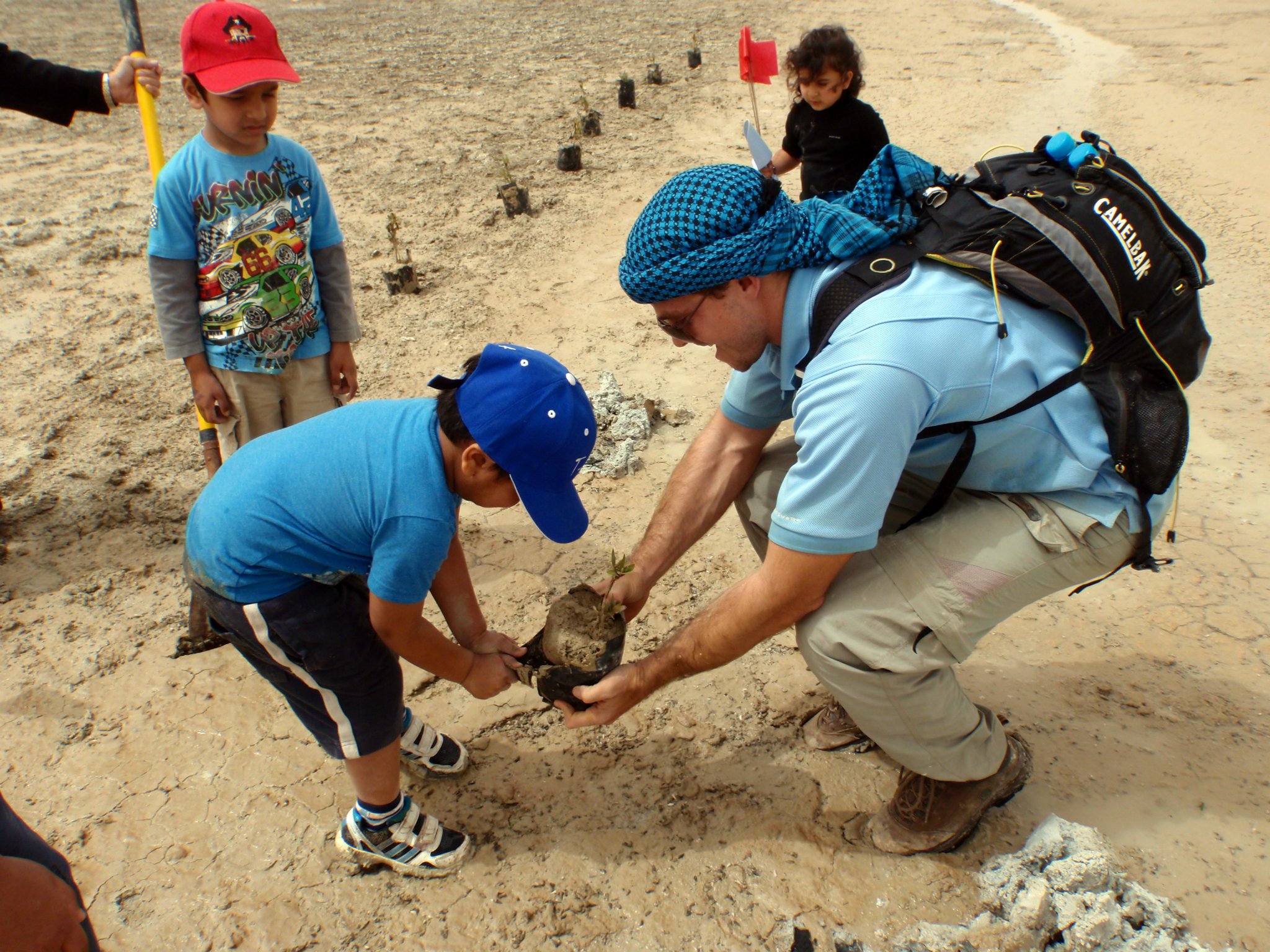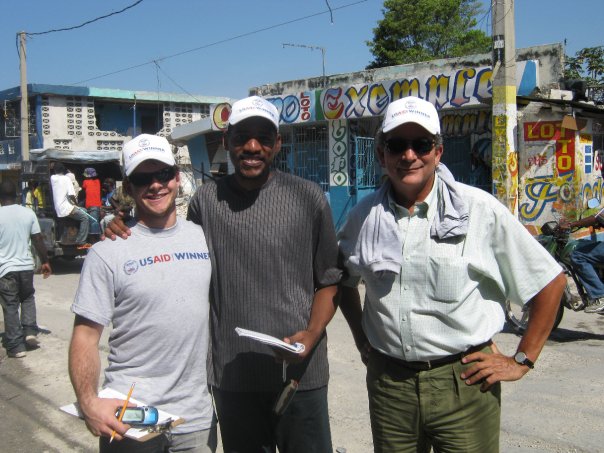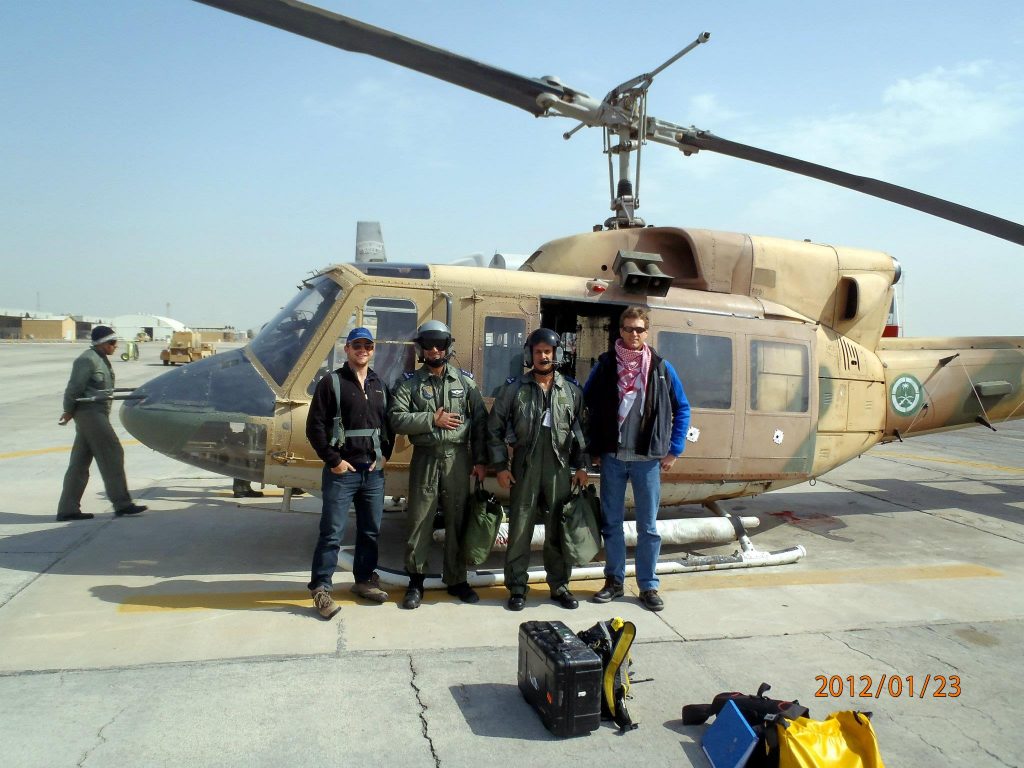Taking risks in your 20s accelerates careers and eliminates student loans

The 20s are a decade to take risks, say yes to opportunities, and expand your comfort zone, particularly if you are trying to advance in your career quickly and pay off student loan debt as fast as possible.

All too often, I see Millennials accepting ‘safe’ jobs after college. They move back to their hometown, or near family and friends, and get stuck. For life. In their comfort zones.
Or maybe they moved to a big city for a high paying job. The trouble is, salaries are not keeping pace with increasing costs of living.
Before you plant roots, consider living differently. At least for a few years…
Hi, I’m Thomas, a 30-something DINK living in an expensive city. I’ve planted roots (for now), but I wouldn’t be where I am today if I hadn’t taken calculated risks.
In this post, I share how taking risks in your 20s can accelerate careers and help eliminate student loans. Here’s my story:
Graduation
I did not fully grasp the magnitude of debt that I was accumulating until graduation day from an expensive private university (go Blue Devils).
And, it's not like I didn't have the opportunity to learn how devastating debt can be.
Why didn’t I take a basic personal finance course in college?! Oh right, it was ‘like’ (yes, I’m a millennial) $1,000 per credit hour. And it wasn’t required.
Oh wait, I think I FAFSA required me to take a brief class on the impact of student loans before hooking me up with mad cash. Dang, I wish I paid attention.
I grew up with the means to cover my needs. I graduated with needs without any means. Perhaps it was my parent's fault for working hard and not bothering me with the concept of hardship. What a "privilege".
Or, maybe there’s a larger issue at play in this country. In the U.S., only a few states require any financial education. No wonder total credit card debt in this country is almost $800b!
I entered the real world with over $80,000 in student loan debt. Let me tell you, I certainly felt the impact of that debt after graduation.
Hello, world, I’m an ecologist (what the heck is that?) with a masters degree, what can you do for me?
Oh, that’s it? $40,000 per year?
Help!
Maybe you resonate with this.
Motivation
My first loan bill destroyed me.
Suffice it to say, I needed to figure out a way to make as much money as possible to pay back my student loans before my accumulating interest doubled in their size.
There must be a way to overcome this obstacle in the pursuit of financial freedom (or at least debt freedom). But how?
All this damn debt motivated me to find a solution.
I was passionate about the environment (still am) and fascinated by all its natural interconnections (ecology). But this field, traditionally, does not pay well. I started asking questions of my employer.
What opportunities are there to make extra cash? What is a smart, efficient, and calculated move I can make to be debt free in the shortest amount of time with my skill set?
Flash forward. $80,000 of student loan debt eliminated in just under 3 years. Debt freedom. Non-traditionally (more on this later).
Perhaps I got lucky. Or, perhaps it’s because I leveraged motivation and said yes to every opportunity. Even if it was outside my comfort zone.
Okay...especially if it was outside my comfort zone.
Risk Taking
Before we go any further, I need to point out that everyone’s situation is different. Trust me, I get that. However, I am not all that unique. Everyone, including me, has situations that could, at least initially, seem limiting. Or, just downright strange.
With that said, I encourage everyone in their 20s to think outside the box and consider living differently. It’s the perfect decade to explore non-traditional options, even if there are hurdles in your way.
Would you consider traveling for work two weeks a month?
How about working in an impoverished country for a few months?
Ever dream of moving to the Middle East for a few years?
Initially, my answer was no.
Living Abroad Pays
Haiti
In December 2009, I finished school and started that $40K/year position as an ecologist.

I rented an apartment with borrowed money (my first paycheck wouldn’t come for another month) and immediately started taking initiative at work. I was persistent and discussed ways to increase responsibility with my employer.
I was open to any opportunity... and open to help create opportunities.
The Haiti Earthquake struck the island of Hispaniola on January 12, 2010. It was a tragic day for the country and the beginning of a long road to recovery.
We had an existing USAID project in Haiti to support watershed management. After the earthquake, it turned into a response effort.
My employer could not find anyone to move there after the earthquake. I was only two weeks on the job and had just moved into a new apartment, but I jumped at the opportunity to make an impact.
This is an emotional topic for me, so I am not going to delve into details.

I will say that I spent six months living and working in Haiti as part of the USAID response effort. The work was powerful, meaningful, and inspiring. The resilience of people much less fortunate than me highlighted many things I take for granted.
While this position was intended for someone with more experience, I showed initiative and packed my bags. I learned quickly and still utilize the skills gained as a project manager for an emergency response effort to this day.
During my time in Haiti, I learned that there is a whole community of expatriates spanning multiple career types. It was here where I met the mentors who encouraged me to continue working abroad.
Saudi Arabia

Did you know that some employers will pay more than double your salary to work overseas? Living abroad changed my life.
After returning from Haiti, I spent two weeks a month down in the Gulf Coast responding to the Deepwater Horizon oil spill. I still wanted to work internationally, so I continued to network and ask questions. Ultimately, I was asked to support a large-scale wetland restoration program in Saudi Arabia. For three years.
Where’s that again? The Middle East? I’d be lying if I told you that Saudi was top on my list of places to travel.
December 2010 was the beginning of a period of civil unrest in a few surrounding countries. However, I did some research and concluded the location and structure of the program made it a pretty safe place to live and work.
This was a calculated risk, yes, so I want to be clear that just because I decided this was the right choice for me, that does not mean that it would be for everybody. We each have to make our own decisions based on our situation, interests, and desires. There are so many to explore.
Ok, let’s do it! I accepted the opportunity to work on a United Nations program aimed at remediating the damages from the Gulf War oil spill along the coast of Saudi Arabia. Right up my career alley!

The pay was incredible. My salary tripled, and the majority of the expenses were paid for by my employer.
Like in Haiti, the Middle East was home to a large expatriate community representing multiple professions. Teachers, nurses, engineers, scientists, doctors, construction professionals, technicians, international aid workers, etc.
Just normal people doing what they love, while reaping the benefits of an increased salary working abroad.
Foreign Earned Income Exclusion
Beneficial tax advantages exist while living and working abroad (consult your tax professional). In summary, when an American taxpayer works abroad, up to $102,100 (tax year 2017) of income can be excluded from taxes if specific criteria are met. This is called the Foreign Earned Income Exclusion.
Increased salary, lower taxes, living expenses paid for. Yep, definitely a non-traditional way to set yourself up for financial success.
Travel
While living abroad, I was able to negotiate for 60 vacation days per year, plus paid flights wherever I wanted to travel.
Yes, living in the heat of the Middle East was a challenge, however, traveling to over 30 countries in three years was pretty cool!
If I have kids (far off), I’ll tell them to take advantage of every travel opportunity in their 20s. It may take some creativity, but it is definitely worth the effort.
Mentors
Your 20s are a time to network and establish mentors. These individuals will help you step out of your comfort zone. Mentors are an important ingredient to career success.
Many of the decisions to step out of my comfort zone were supported by, and explored with, mentors. Even now, in my 30s, I have continued to see enormous value in identifying two to three people who share similar passions, but also have experiences that are new to me. Never stop learning.
Paying back student loans
Student loan debt is crippling the millennial generation. I decided to focus on paying them back in the shortest amount of time possible.
The triple salary while living abroad helped. I was able to put $30,000/year towards my loans while also maxing out my retirement.
Remember, my base salary started at $40,000/year. This nontraditional career route enabled me to pay back the loans in under three years.
Pro-tip, don’t stop saving and investing once you are finished paying back student loans. I made this mistake. Sure, I enjoyed living large, however, I should have traveled in economy class and stayed in budget hotels in order to get even further ahead financially.
Career Advancement
When you work abroad, the skills and experiences gained are extremely valuable. Leverage this in the workplace. Employers seek discipline and responsibility that come with working with international stakeholders. They value the sacrifice and can-do attitude that is cultivated while working in remote locations. Sell this.
In the years since returning home, I’ve been able to compete with people twice my age for positions that typically require many more years of experience. And win.
The risks I took in my 20s accelerated my career and prepared me to succeed. Additionally, salaries are much higher for those that bring different experiences. Think differently!
Think outside the box (when it comes to housing expenses)
As discussed, I traveled for work for much of my 20s. However, I needed to maintain a home base for periodic trips back to the office. I also needed a place to keep all my stuff. I have a lot of gear and things (my better half wants me to downsize). I refused to waste money on rent, especially if I wasn’t going to be there for the majority of the time.
I was determined to find a solution. Luckily (for some), banks were giving out low-interest loans with little to no down payment required to buy a home in the Southeast. It was a no-brainer. Six months after graduating from school, and while I was in Haiti, I bought a three bedroom house. And rented out rooms immediately.
My mortgage was completely covered by rental income. House hacking at it’s finest!
Conclusions
Ok, so you probably aren’t going to go live in Saudi Arabia. That’s cool. You don’t need to in order to get ahead in your career and finances. There are plenty of opportunities to explore and live differently. Your 20s are a decade to try something new, something adventurous, and something non-traditionally lucrative.
Ask questions. Take initiative. Be persistent.
By day, Thomas is an Operations Manager and Market Strategy Analyst for a large engineering firm. He still loves ecology, however. By night, he attempts to encourage millennials to make more, do more, and spend less in expensive cities. Check out his blog, City for Millennials.